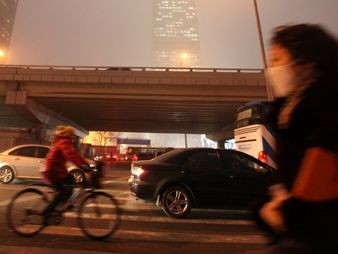 Basel, Switzerland – Rapid urbanization can hold long-term economic, social and environmental promise for developing countries if investments made now in infrastructure, housing and public services are efficient and sustainable, the World Bank says in a new report, “Planning, Connecting and Financing Cities – Now: Priorities for City”.
Basel, Switzerland – Rapid urbanization can hold long-term economic, social and environmental promise for developing countries if investments made now in infrastructure, housing and public services are efficient and sustainable, the World Bank says in a new report, “Planning, Connecting and Financing Cities – Now: Priorities for City”.
“With many urban centers in the developing world still taking shape, we face an historic but narrow opportunity to build smart cities that encourage inclusive green growth and improve people’s lives,” said Zoubida Allaoua, Director of Urban and Disaster Risk Management at The World Bank. “But time is running out as the investments and policies put in place today will shape a city’s physical form and its carbon footprint for generations to come.”
In the next two decades, cities are expected to expand by another two billion residents, as people move in unprecedented numbers from rural areas to pursue hopes and aspirations in cities. More than 90 percent of this urban population growth is expected to occur in the developing world, where many cities are already struggling to provide basic needs such as water, electricity, transport, health services and education.
Launched at the Global Energy Basel Conference held on January 22-23, 2013, at Basel, Switzerland, the report provides a policy guide local officials can use to create the jobs, housing and infrastructure needed to turn their cities into hubs of prosperity for current and future residents.
Report authors note that most new urban growth will not take place in the “megacities” of the world, e.g., Rio de Janeiro, Jakarta or New Delhi, but rather in less commonly recognized “secondary” cities – places like Huambo in Angola, Fushun in China, and Surat in India.
To help policymakers prepare for and manage growth, the report distils lessons learned from 12 countries across all geographic regions and stages of urbanization – from Korea, to India, to Colombia, to Uganda. It then translates these global lessons into practical policy advice.
“City leaders at all levels must start now with careful land use planning that looks well into the future for the sake of their city’s economy, equity, and sustainability. How they prepare for rapid urbanization matters not only to the future of their cities but to global economic progress,” said report author Somik Lall, Lead Urban Economist at the World Bank.
The report draws on success stories from Korea, Singapore and Japan to demonstrate the importance of coordinating financing and planning of public transport early in the design stage both to connect people to jobs and preserve a green urban footprint. The report also showcases innovations from the developing world, such as Colombia’s successful experience nurturing municipal debt markets to encourage investment in its cities.
The report is part of the World Bank’s Urbanization Reviews Program, co-financed by the Swiss State Secretariat for Economic Affairs (SECO) and the Cities Alliance to help national and local policymakers have the latest tools to make informed policy and investment decisions.
Source: The World Bank.



















